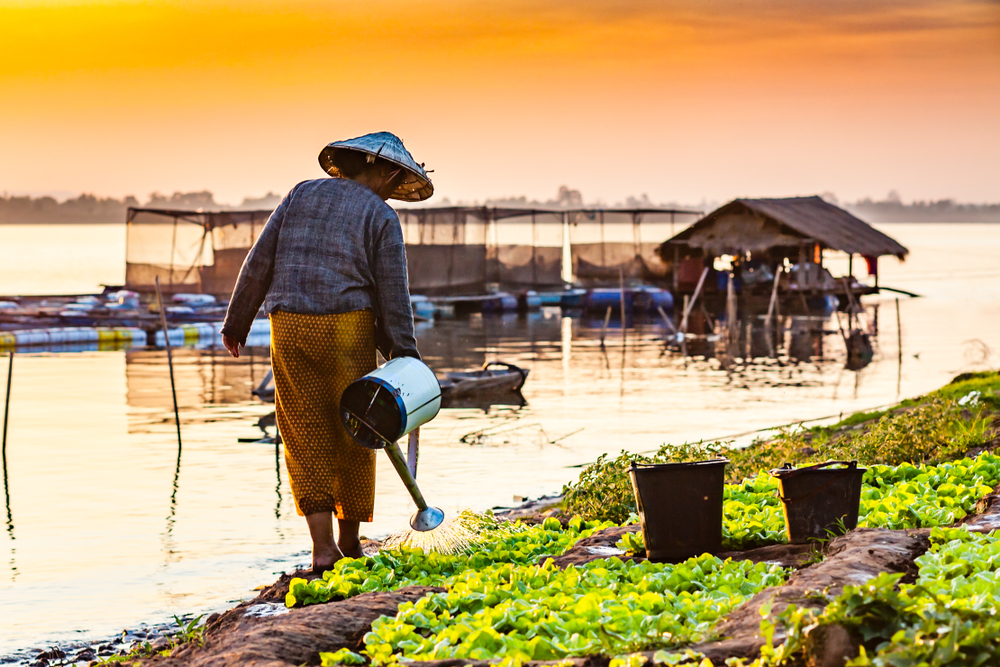Vietnam developed into the second largest rice exporter in the world between 1975 and 1995, thanks to the opening up of the Mekong Delta. The Mekong Delta, on average one meter above sea level, is now experiencing subsidence and salinization due to the agricultural system, while sea levels are rising and the rainy seasons are becoming more extreme, causing the Mekong to overflow its banks more often. The Mekong Delta plan that WUR and others worked on will be presented in Glasgow tomorrow.
Agriculture in the Mekong Delta has to adapt to the new climate conditions. In addition, farmers must also respond to the changing demand for food and grow more vegetables, fruit and fish instead of rice. Ever-higher dikes around the Mekong River make no sense, says Wageningen researcher Gerardo van Halsema, one of the authors of the Mekong Delta Plan from 2013. In this plan, the river is given more space and agriculture adapts.
Case
The Vietnam case will be discussed during the seminar on Bridging science policy dialogue on climate & food at the Climate Summit in Glasgow on Saturday 6 November. ‘We focus on how scientific insights help to develop and implement a long-term vision together with government, NGOs and the business community,’ says Ivo Demmers. ‘We expect this to inspire other partners to apply this in other areas as well.’
Rice
The plan means that farmers in higher areas will only be able to achieve two instead of three rice harvests per year and combine rice cultivation with fish farming. In the lower areas, the Delta Plan proposes a combination of rice cultivation (in the wet season) and fruit and vegetable cultivation (in the dry season). To combat the salinization and subsidence in the coastal zone, the farmers no longer use groundwater for the cultivation of freshwater fish such as tilapia and pangasius, but are switching to the cultivation of saltwater fish and shrimp.
Food Systems
In the elaboration of this plan, WUR uses a food systems approach, in which all factors of the food systems – such as cultivation, soil, water availability, markets, a healthy diet, climate and farmers’ incomes – are assessed and integrated. The food systems approach puts all socio-economic and environmental drivers in one scheme. Ivo Demmers coordinates this approach at WUR.
The experiences in Vietnam are useful for other countries and partners. The case is presented by Dang Kieu Nhan, director of the Mekong Delta Development Research Institute.
Read more about the Delta Plan in Vietnam: article and longread

 Photo Shutterstock
Photo Shutterstock ![[Seriously?] Less is more](https://www.resource-online.nl/app/uploads/2025/10/36-WEB_DeNeus.png)

